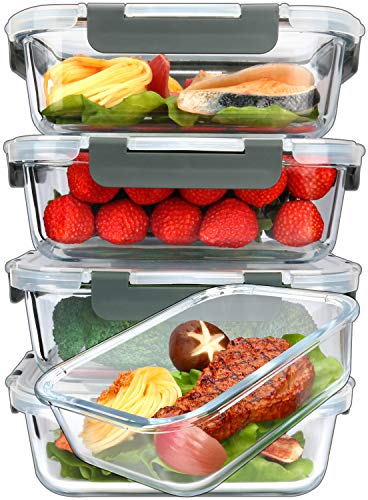What are silicone food containers?
Silicone food containers have been gaining popularity as a replacement for traditional plastic containers. They are made of a synthetic material called silicone, which is a type of polymer derived from silicon, a natural element found in sand and quartz. These containers can be used to store and transport food, and are generally flexible, durable, and resistant to high and low temperatures.
Are silicone food containers safe for your health?
The safety of silicone food containers has been a topic of debate among experts. According to the US Food and Drug Administration (FDA), silicone is considered to be a safe food contact material, and there is no evidence to suggest that it is harmful to human health. However, some studies have raised concerns about certain additives that can be found in silicone, such as phthalates or BPA.
What are the potential risks of using silicone food containers?
One of the potential risks of using silicone food containers is the presence of certain additives, such as phthalates or BPA, which are used to make the material more pliable. These chemicals have been linked to health issues such as hormonal disruptions and developmental problems in children. However, the levels of these additives in silicone food containers are generally considered to be low and safe for use. Another potential risk is the leaching of substances from the silicone into the food, especially when the containers are exposed to high temperatures or acidic and fatty foods.
How can you minimize the risks of using silicone food containers?
To minimize the risks of using silicone food containers, it is recommended to choose products that are free from harmful additives such as phthalates or BPA. Look for containers that are labeled as “food-grade” or “FDA-approved”, as this means that they have been tested and approved for contact with food. Avoid using silicone food containers for cooking or heating food in the microwave or oven, as this can increase the risk of leaching. Instead, use them for storing and transporting food, or for cold dishes such as salads or fruit.
Overall, silicone food containers can be a safe and convenient alternative to traditional plastic containers, as long as they are free from harmful additives and used correctly. However, it is important to be aware of the potential risks and take steps to minimize them, especially when it comes to heating or storing acidic or fatty foods. If you have concerns about the safety of silicone food containers, consult with a healthcare professional or a trusted expert in the field.



![[10-Pack]Glass Meal Prep Containers -MCIRCO Food Storage Containers with Lifetime Lasting Snap Locking Lids, Airtight Lunch Containers, Microwave, Oven, Freezer and Dishwasher](https://m.media-amazon.com/images/I/41ZdkMs1ciL.jpg)

